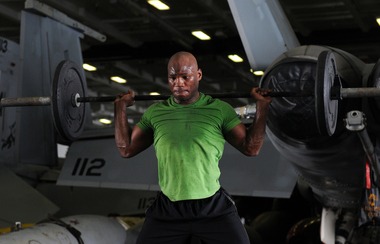1. Protein is essential for you to survive.
Protein is a component of every cell, tissue, and organ in the body. When we eat protein, it is digested into amino acids, which are considered the “building blocks” of life, as they are responsible for creating all the other proteins our body needs. This is a continuous cycle, and thus your body needs protein every day. If it’s been a while since high school biology, and this seems confusing, think of a big building made out of different Lego pieces. Once that building is broken apart, you can use the pieces to build new things, just as your body does with the amino acids found in the protein you digest.
2. Not all proteins were created equal.
Different sources of protein provide different amino acids. Foods that provide all of the essential amino acids, or ones that cannot be made by our bodies, are called complete proteins and come from animal-based foods. Meat, poultry, fish, milk, eggs, and cheese are sources of complete proteins. Incomplete proteins are low in one or more of these essential amino acids, and include foods such as beans and rice. However, you can combine these incomplete protein sources to ensure you get all of the essential amino acids you need.
3. You do not need as much protein as you think you do.
The recommended dietary allowance (RDA) for protein is 46 grams for women ages 19–70+ years of age and 56 grams from men 19–70+ years of age. This equates to 10–35% of your daily caloric intake. According to the Food and Nutrition Board, it is recommended that you consume 0.36 grams of protein for every pound of body weight. For example, if you weigh 160 pounds, you should consume 58 grams of protein per day. The 2005–2006 National Health and Nutrition Examination Study (NHANES) found that men above the age of 20 years old were consuming 101.9 grams of protein and women of the same age were taking in 70.1 grams of protein. This means that most Americans are getting almost twice the amount of protein they need.
4. You can get a sufficient amount of protein from plants.
For those who choose to not eat meat, there are still ample ways to get your recommended daily intake of protein. Non-animal sources of meat include beans, nuts, nut butters such as peanut butter, almond milk, seeds, whole grains, and soy protein such as tofu and veggie burgers. Contrary to popular belief as well, you can be an athlete and a vegetarian. Famous vegetarian athletes include Joe Namath, Prince Fielder, and Billie Jean King.
5. More protein does not always equal more muscles.
Eating large levels protein does not directly equate to more muscle mass. In fact, athletes only need slightly more protein than the average individual, which they are likely getting from the increased amount of food intake. A 2004 article in the Journal of Sports Sciences, by Kevin D. Tipton and Robert R. Wolfe, states that increased protein will provide a “minimal” advantage and that lean body mass can be maintained with a large variety of protein diets. They conclude that most athletes are already meeting this requirement, thus high protein diets are not necessary.
6. A high-protein diet can harm you.
Often high-protein foods, such as red meat and full-fat dairy products, contain high levels of saturated fat as well. These foods can increase the amount of bad cholesterol in your body and thus put you at a higher risk of heart disease. In people who suffer from kidney disease, high-protein diets put an extra strain on the kidneys as they attempt to eliminate the by-products of protein metabolism. Furthermore, some high-protein diets suggest limiting carbohydrate intake. This can result in a lack of other important nutrients, as well as fiber, which can cause constipation and diverticulitis. The information on the internet related to protein is largely dominated by websites promoting high-protein diets and supplements. The next time you read about how you should eat a bowl of whey a day with a side of bone marrow, take a look at how many supplement ads are also on the website. A balanced diet, as always, is best. Before starting any diet, though, you should talk to your healthcare professional. Now, enjoy your chicken and maybe throw in some veggies or some pasta. Your biceps will not disappear.
